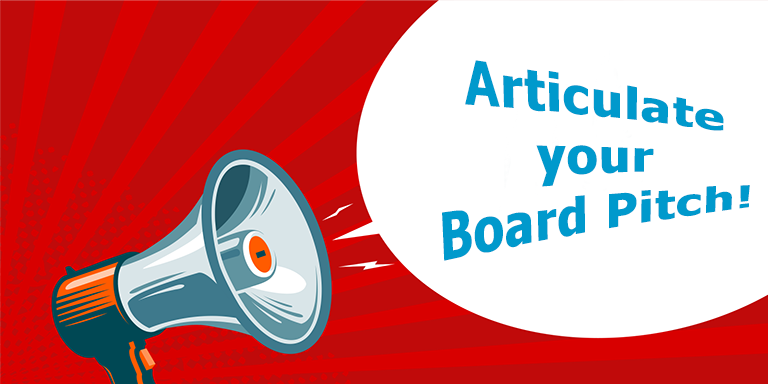Your options after a Board Interview – Whatever the outcome

After your Board Interview, you may not be appointed even if you are well qualified. Or you are elated as you have been offered the board role. Regardless of the outcome, you should carefully consider what to do next. Both outcomes can lead to new board opportunities.
If you were unsuccessful, don’t make the Board Interview a waste of time
Not getting appointed after a board interview may make you feel like the entire application process was for nothing. However, it doesn’t have to be a waste of effort and time. Even though you may be disappointed, there are several things you can do to make the most of the experience and drive future board appointment success.
It starts with asking for feedback. It can be uncomfortable for those who were involved in the interview and selection process to give feedback. So, permit them to do so and encourage them to be honest. This way, you can learn from your mistakes and avoid them in the future. You can also identify what you did right and what skill and experience appealed to them. You can build on this when applying for future board positions. You should also use the feedback to reflect on whether this was the right board role for you.
Tell yourself that you applied for the role because you were passionate about the cause and truly believed you could help. Getting to know the organization should have been a positive experience. Further, all the research you did, all the new connections you made, and all the knowledge you gained may result in new opportunities presenting themselves in the future. Consider how you can further build on these efforts.
Your efforts in preparing your board application and for the board interview should have resulted in you developing relationships with board directors, both past and present. As well as with stakeholders, clients, and even competitors. These relationships you should now consider as “weak ties”. However, these relationships are far from weak when it comes to gaining a board seat. In fact, weak ties connections account for approximately 50% of all board appointments. If you take time to maintain these relationships, your unsuccessful board interview can unlock future board opportunities—ones you would never have considered otherwise.
If you were successful, should you accept the board seat?
If you are offered the seat, take the time to conduct further research on the organization, plus past and present board members, before giving your response. This is even more important if this is your first board seat. The board experience and reputation built during your first board role will impact future board opportunities.
- If you haven’t done so already, reviewing the financials and discussing them with the organization’s auditors, CEO, and accountants is recommended. I also recommend that you get access to and read the board minutes to consider current and past issues.
- Then, speak with relevant stakeholders to address any concerns you may have. Additionally, it is often beneficial to talk with key executives to understand their relationship with the board.
- Finally and most importantly, you should spend some one-on-one time with the Board Chair. During this conversation, evaluate their capability to lead the board.
- If you have made it this far, it is time to look at the fine print. Be sure to familiarize yourself with the terms and conditions of your role on this board. This includes time commitments (formal and informal) and additional responsibilities such as fundraising. Remuneration should be negotiated after an offer has been made.
Accepting the appointment presents the chance to utilize your success by expanding your network and reconnecting with those who have assisted you. Ensure you follow up with all your contacts and weak ties to tell them about your new board appointment.
Take advantage of the outcome in any way possible.
According to two separate studies, it has been found that between 50% and 82% of boards recruited new members in the past year. Therefore, it is important to reach out to those who have supported and provided guidance during your board application process, regardless of the outcome.
It may have been a while since you last spoke with them. A lot could have changed for both of you. Reach out to these people again. Show your gratitude by treating them to coffee and strengthening these relationships. Reconnecting will help you maximise the relationship and stay informed about potential opportunities.
Both successful and unsuccessful board interviews are valuable as they provide an opportunity to establish crucial weak ties that may facilitate a future board appointment. They also offer an opportunity to gain experience and confidence in the board appointment and board interview processes. By requesting feedback you will have the insights to refine your board pitch, board CV, board interview skills and your board career goals.
Related Articles
Board chairs seek passionate board members
Should you accept a Board Seat?







Responses